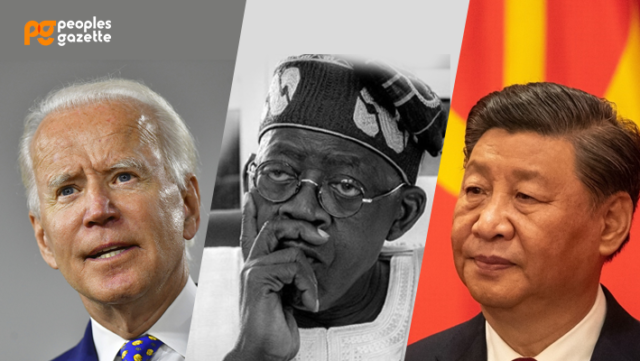An appellate court in the United States has rejected Nigeria’s sovereign immunity and authorised a Chinese consortium to proceed with its efforts to confiscate Nigeria’s assets abroad, aggravating a crisis that President Bola Tinubu has been trying to manage in Europe and prevent from spilling to other jurisdictions.
The decision on August 9, 2024, came after judges at the U.S. Court of Appeals for the District of Columbia in Washington found that Nigeria had gruesomely violated both fundamental and commercial rights of executives at a Chinese firm that had entered into a trade zone agreement with Nigeria.
The Chinese workers of Zhongshan had approached the U.S. judicial system to retrieve an outstanding arbitration award for breach of contract after initially winning their case in the United Kingdom in 2021. The Chinese expatriates were awarded $55.6 million in compensation from Nigeria and $75,000 in moral damages, alongside interest and legal and arbitration fees, court filings said.
The proceeding stemmed from a breakdown of a contract between Zhongshan and Ogun State government, which had entered into a deal with the Chinese expatriates in 2007 to develop a free trade zone. After years of developing the project, court filings alleged, former Governor Ibikunle Amosun unilaterally terminated the contract and deployed crude tactics to avoid following the terms laid in the initial paperwork signed by all parties.
The Chinese also said they were arrested, detained and detained for weeks without charges, during which uncivilised Nigerian police officers tortured them in custody. The UK court said it was satisfied with the evidence submitted by the Chinese before awarding them nearly $60 million.
As the Chinese sought to enforce the judgement in the U.S., Nigeria argued before the United States District Court for the District of Columbia in Washington that its sovereign immunity forbade the matter from being entertained in a U.S. court.
However, the federal judge denied Nigeria’s argument, saying the country is a signatory to the New York Convention that allowed arbitration between persons, which may include a sovereign entity.
Nigeria subsequently filed an interlocutory appeal in the matter on April 22, 2024, and two of the three-man panel decided that the matter should proceed because Nigeria had lost its grounds for immunity when it joined Ogun in violating the contractual agreement.
The court said that since Ogun is a federating unit of Nigeria, the country can be held liable for the breach against the Chinese.
“Whether the arbitration exception applies in this case therefore turns on whether a treaty—specifically, the New York Convention—governs the Final Award,” the majority, Patricia Millett and Michelle Childs, said. “We hold that it does because the Final Award arose from (1) a legal relationship, (2) that is considered as commercial, and (3) is between persons.”
The judges also concluded that “Zhongshan and Nigeria shared a legal relationship because Nigeria owed Zhongshan legal duties under the Investment Treaty.” The treaty was signed between Nigeria and China in 2001, allowing free trade zones to be established to promote the commercial interests of both countries.
The dissenting judge, Greg Katsas, said Nigeria should not be stripped of its immunity because the targeted assets also came under the country’s sovereign umbrella.
The matter can now proceed in the lower court, which had already signalled its intention to allow the Chinese to pursue Nigeria’s assets in the U.S. Nigeria has fixed assets across the U.S. and deposits from crude earnings with financial behemoth JP Morgan.
The decision came days after the Chinese investors obtained court orders in France to pursue Nigeria’s European assets. They immediately initiated attempts to seize Nigeria’s private jets in different European jurisdictions.
In separate but similar statements, the the federal government and Ogun State attacked the Chinese as fraudulent, compared the case to the infamous P&ID case and said efforts had commenced to overturn the judgement in France.
Both authorities, however, did not immediately say whether they had heard about the development in the U.S., much less if they would appeal the decision to the U.S. Supreme Court, which may or may not grant certiorari.







